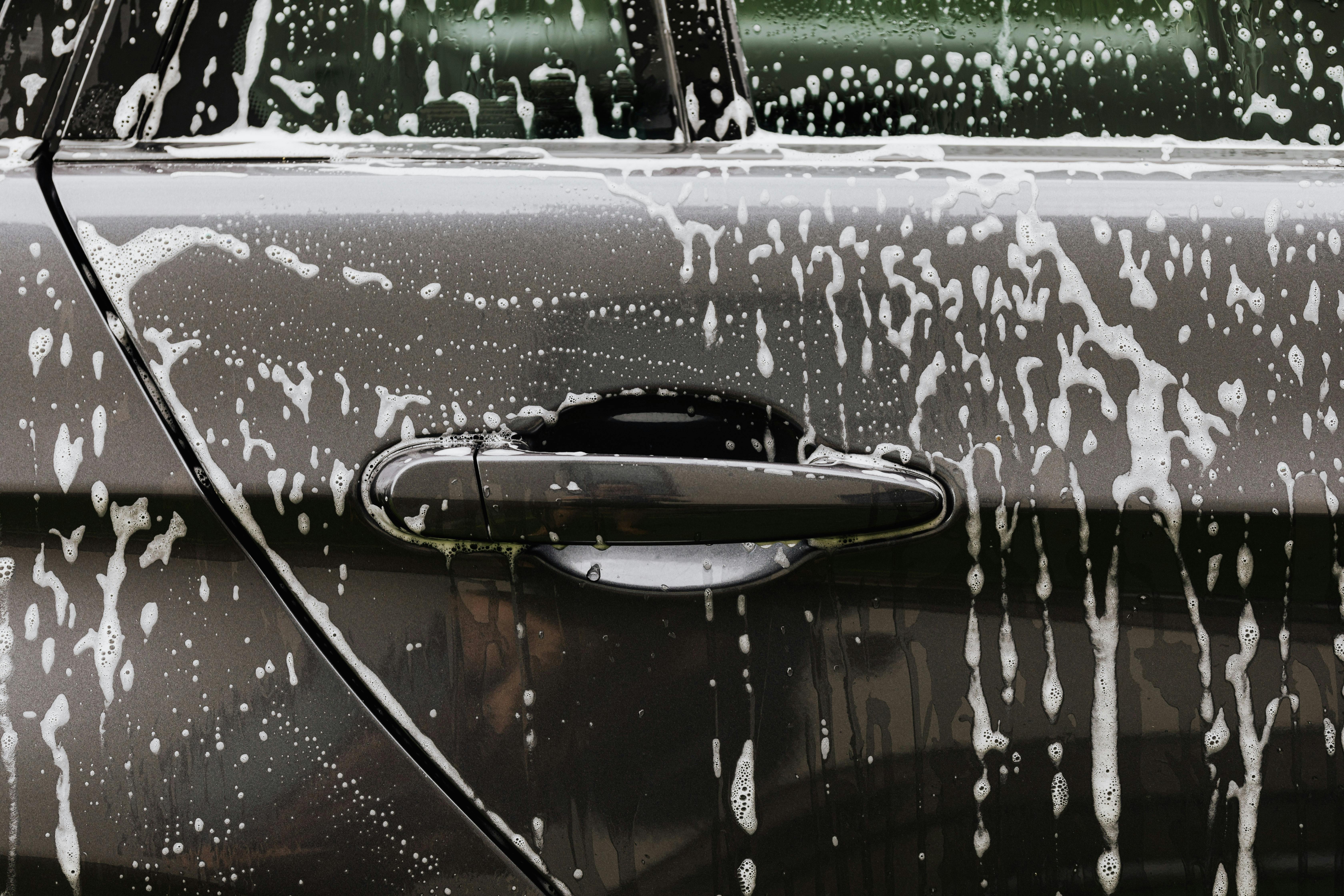Distilled water is water that has been boiled into steam and then condensed back into liquid form. It is commonly used in a variety of applications, including drinking, cooking, medical procedures, cleaning products, and even industrial processes. Distilled water has become increasingly popular due to its many benefits, such as being free from impurities and minerals. In addition to this, it is also a great option for cleaning because it does not contain any contaminants that can damage surfaces or leave behind residue. This article will discuss the benefits of using distilled water for cleaning and how to use it safely.Cleaning with distilled water offers a number of benefits. Distilled water is free of minerals and other contaminants, making it ideal for use in household cleaning. By using distilled water, you can avoid the residue that can be left behind from mineral-filled tap water. This means that surfaces can be more thoroughly clean and free from streaks or stains. Additionally, distilled water is safe to use on a variety of surfaces, including glass and other delicate materials without fear of damaging them. Furthermore, cleaning with distilled water helps to prevent the buildup of limescale on fixtures and surfaces over time, resulting in longer-lasting shine and luster.
What is Distilled Water?
Distilled water is water that has been purified through a process called distillation. This process involves boiling the water and collecting the steam, which is then cooled and condensed back into liquid form. The result is pure, bacteria-free water free from impurities such as minerals, salts, and metals. Distilled water is used in many applications such as industrial processes, cleaning products, and medical equipment. It can also be used for drinking in place of tap water because it contains no contaminants or other pollutants.
The distillation process removes all of the dissolved solids from the water, including minerals like calcium and iron that can cause an unpleasant taste or odor. Distilling also removes any bacteria or viruses present in the water. This means it stays fresh longer than untreated tap water and does not require filtering before drinking. In addition to being safe to drink, distilled water does not leave behind any residue when used for washing or cleaning purposes.
Though distilled water does not contain any of the beneficial minerals found in tap water, it is still considered safe to drink by most health authorities around the world. It has a neutral
Is Distilled Water Good for Cleaning?
Distilled water is a very popular choice for cleaning due to its purity and lack of contaminants. It is especially beneficial when cleaning delicate items, as it does not contain any minerals or other impurities that could damage them. Distilled water is also great for use in steam cleaners and other high-pressure cleaning systems, as it is free of mineral deposits that can clog the system. Additionally, distilled water does not leave any residue on surfaces after it has been used, making it ideal for dusting and wiping down areas.
Because of its purity, distilled water can also be used in many household chores including ironing and laundry. The lack of minerals and other contaminants in the water helps keep fabrics looking their best and prevents colors from bleeding or fading over time. It is also great for spot-cleaning upholstery, as it does not leave behind any soapy residue that could attract dirt or cause discoloration.
Distilled water can even be used in some car detailing jobs, such as cleaning the windshield or windows. It is important to note, however, that distilled water should never be used on painted
Advantages of Cleaning with Distilled Water
Cleaning with distilled water is often recommended for a variety of products and surfaces as it has many advantages. Distilled water is free from impurities such as minerals, salts, and other chemicals which can damage delicate surfaces when cleaning. It is also very effective at removing dirt from surfaces, without leaving streaks or residue behind. Additionally, because it does not contain any additives or contaminants, it is less likely to cause any harm to the environment when used for cleaning purposes.
Using distilled water for cleaning also offers cost savings compared to using tap water or bottled water. Tap water may contain minerals or other contaminants that can harm surfaces over time, while bottled water can be expensive. Distilled water is typically much cheaper than either of these options and can be reused multiple times before needing to be replaced. This makes it an economical choice for cleaning tasks such as window washing, car detailing, and household chores.
Finally, using distilled water for cleaning allows users to customize their cleaning routine and choose the best product or solution for their particular needs. Different solutions are available depending on the type of surface being cleaned and
Advantages of Using Distilled Water for Cleaning
Using distilled water for cleaning has many advantages. For one, it is free of minerals and other impurities that may be found in tap or spring water. This means that when using distilled water, there is no risk of staining surfaces or leaving behind residue from dissolved minerals. Distilled water also offers a higher degree of purity which can be beneficial in certain cleaning applications. Additionally, it is widely available and relatively inexpensive compared to other types of purified water, making it a great choice for those looking to save money on their cleaning supplies.
Disadvantages of Using Distilled Water for Cleaning
The main disadvantage of using distilled water for cleaning is the lack of beneficial minerals that are found in tap and spring water. These minerals can help to protect surfaces from corrosion or other damage and are essential for certain types of cleaning applications. Additionally, distilled water does not have any natural disinfectant properties which could make it less effective at killing bacteria and germs than regular tap or spring water. Finally, because it does not contain any natural protective agents

Using Distilled Water for Cleaning
Distilled water is an excellent choice for use in cleaning. It is free from impurities, including minerals, and it has a neutral pH level that makes it ideal for use on many surfaces. Distilled water can be used to clean glass, mirrors, countertops, and other hard surfaces. It can also be used to mop floors and wash laundry. The lack of minerals in distilled water makes it gentler on fabric and more likely to leave behind a streak-free shine. To get the most out of using distilled water for cleaning, it should be mixed with a gentle cleaning solution before being applied to the surface. This will help to dislodge dirt and grime that may have collected on the surface and will make the area much easier to clean.
When using distilled water for cleaning purposes, one should make sure that they are wearing gloves and other protective clothing as appropriate. This will help to prevent any irritation from the cleaning solution or from any lingering chemicals on the surface being cleaned. Additionally, it is important to remember that distilled water should never be used on natural wood surfaces as this could damage the finish or cause
Alternatives to Using Distilled Water for Cleaning
When it comes to cleaning, distilled water is often thought of as the ideal choice. But there are other alternatives available that can provide just as good a clean with fewer drawbacks. One option is to use water filtered through a reverse osmosis system. This process removes many contaminants from the water, leaving it pure and safe for use in cleaning. Another option is to use deionized water, which is also free of most dissolved solids and minerals.
Another alternative to distilled water is tap water that has been filtered through a carbon filter. This removes many of the chemicals and contaminants found in tap water, making it suitable for cleaning purposes. A carbon filter can be purchased relatively inexpensively and will provide clean, safe water for years to come.
Distilled white vinegar is also an excellent natural cleaner that can be used instead of distilled water. Vinegar is highly acidic and has strong disinfectant properties, making it an effective cleaner for a variety of surfaces including glass, tile, stainless steel, and more. It’s also much less expensive than distilled or filtered water, so it’s an economical choice for
Distilled Water
Distilled water is a type of purified water that has had many of its impurities removed through distillation. This process involves boiling the water and collecting the steam, which is then condensed back into liquid form. The result is a highly pure form of water that can be used for a variety of purposes. Distilled water can be used to clean a variety of surfaces, including glass, tiles, countertops, and even stainless steel. It is also safe to use on electronics and other items that may be sensitive to chemicals found in tap water or other cleaning solutions.
When cleaning with distilled water, it is important to remember that it will not remove all dirt and debris from a surface. It can help reduce the amount of dust and other particles left behind after cleaning, but more vigorous scrubbing or a stronger cleaning solution may be necessary for heavier soils or more difficult stains. Additionally, distilled water should not be used on porous surfaces such as wood or fabric as this could lead to damage due to over-saturation.
Overall, distilled water is an effective way to clean many different types of surfaces without the need for harsh chemicals

Conclusion
In conclusion, distilled water is a great choice for cleaning. It is pH neutral and won’t leave any residue or build-up behind, making it ideal for removing dirt and grime without damaging surfaces. Furthermore, it is widely available and very affordable, making it an excellent option for those who are looking to save money on their cleaning supplies. While distilled water can provide a deep clean, it should not be used in place of tap water in certain cases. For instance, when using a steam cleaner or other device that requires the use of tap water to operate correctly, distilled water should not be substituted.
Overall, distilled water is an excellent choice for cleaning as it is safe to use on most surfaces and won’t leave any harmful residue behind. It is also very affordable and widely available, making it an ideal choice for those looking to save money on their cleaning supplies.

